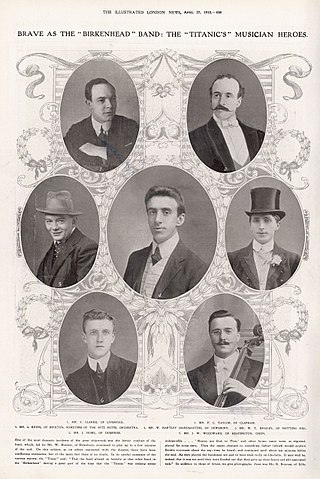Related Research Articles

Robin Hugh Gibb was a British singer and songwriter. He gained worldwide fame as a member of the Bee Gees with elder brother Barry and twin brother Maurice. Robin Gibb also had his own successful solo career. Their youngest brother Andy was also a singer.

Hayley Dee Westenra is a New Zealand classical crossover singer. Her first internationally released album, Pure, reached number one on the UK classical charts in 2003 and has sold more than two million copies worldwide, making it one of the fastest selling albums in her country's history.

Aled Jones, is a Welsh singer, radio and television presenter, and actor. As a teenage chorister, he gained widespread fame in 1985 with his recording of "Walking in the Air", which reached No 5 in the UK pop chart. He has since worked in television with the BBC and ITV, and on radio for the BBC and Classic FM.

Sir John Milford Rutter is an English composer, conductor, editor, arranger, and record producer, mainly of choral music.

Mario Frangoulis is a Greek vocalist, famous for his refined tenor vocals. Born in Rhodesia, Frangoulis after his three-decade long career has established himself as a critically and commercially acclaimed recording artist and vocal performer in Greece and neighbouring countries. His initial rise to international prominence came with his hit song "Vincerò, Perderò" and his rendition of the song "Nights in White Satin".

Gabriel Fauré composed his Requiem in D minor, Op. 48, between 1887 and 1890. The choral-orchestral setting of the shortened Catholic Mass for the Dead in Latin is the best-known of his large works. Its focus is on eternal rest and consolation. Fauré's reasons for composing the work are unclear, but do not appear to have had anything to do with the death of his parents in the mid-1880s. He composed the work in the late 1880s and revised it in the 1890s, finishing it in 1900.

John Herbert Foulds was an English cellist and composer of classical music. He was largely self-taught as a composer, and belongs among the figures of the English Musical Renaissance.

Howard David Blake is an English composer, conductor, and pianist whose career has spanned more than 50 years and produced more than 650 works. Blake's most successful work is his soundtrack for Channel 4’s 1982 film The Snowman, which includes the song "Walking in the Air". He is increasingly recognised for his classical works including concertos, oratorios, ballets, operas and many instrumental pieces.

Knut Nystedt was a Norwegian orchestral and choral composer.
Friday Night Is Music Night is a long-running live BBC radio concert programme featuring the BBC Concert Orchestra, broadcast from 1953 to 2023 on the BBC Light Programme and its successor BBC Radio 2, moving to BBC Radio 3 from April 2024.

The Requiem, Op. 9, is a 1947 setting of the Latin Requiem by Maurice Duruflé for a solo baritone, mezzo-soprano, mixed choir, and organ, or orchestra with organ. The thematic material is mostly taken from the Mass for the Dead in Gregorian chant. The Requiem was first published in 1948 by Durand in an organ version.
Cliff Masterson is an orchestrator, conductor, songwriter, arranger and music producer.

Isabel Suckling is a British singer who, upon signing a record deal with Decca Records, became the youngest classical recording artist signed by Decca, and the first choirgirl to sign a record contract with a major music label. Suckling sang in the choir at York Minster at the time, and was discovered by Decca following a nationwide search. She was mentored by the singer, TV/radio presenter and former boy soprano Aled Jones.

The musicians of the Titanic were an octet orchestra who performed chamber music in the first class section aboard the ship.

This is a discography of works by British singer-songwriter Robin Gibb as a solo artist. For information about recordings made by the Bee Gees see Bee Gees discography. Gibb's entire song catalogue is published by Universal Music Publishing Group.
The ocean liner Titanic has been extensively portrayed in films, books, memorials and museums.
This is a summary of 2010 in music in the United Kingdom.

John Simon is a South African-born British classical music composer.

50 St. Catherine's Drive is the seventh and final album by singer-songwriter Robin Gibb, released on 29 September 2014 in the United Kingdom and 30 September 2014 in the United States on Rhino Records two years after his death in 2012. The album was named after the address on the Isle of Man where Gibb and his family lived. The album was also co-produced and remastered by his son Robin-John Gibb who had previously composed the album Titanic Requiem with his father. The album reached No. 70 in the United Kingdom and No. 39 in Germany.
References
- ↑ Melissa Locker (May 21, 2012). "Robin Gibb's Last Act: A Classical Requiem for the Titanic". Time Magazine. Retrieved 16 April 2018.
- 1 2 Ivan Hewett (11 April 2012). "Titanic Requiem, Central Hall, Westminster, review". The Telegraph. Retrieved 16 April 2018.
- ↑ Chris Caspell (10 April 2012). "The Titanic Requiem". Classical Source. Retrieved 16 April 2018.
- ↑ Ivan Hewett (11 April 2012). "Titanic Requiem, Central Hall, Westminster, review". The Telegraph. Retrieved 5 September 2018.
- ↑ Andy Gill (20 April 2012). "Robin Gibb & RJ Gibb, The Titanic Requiem (Rhino)" . The Independent. Archived from the original on 2022-06-21. Retrieved 16 April 2018.
- ↑ Melissa Locker (May 21, 2012). "Robin Gibb's Last Act: A Classical Requiem for the Titanic". Time Magazine. Retrieved 5 September 2018.
- ↑ "Titanic Requiem". Robin Gibb. Retrieved 16 April 2018.